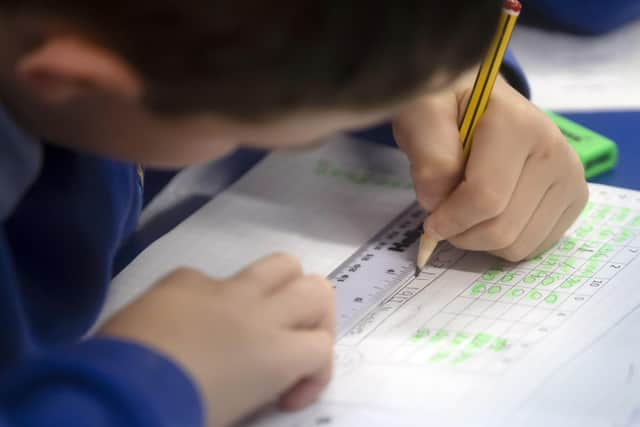Fewer schools offer tutoring support in Bedford – amid Government cuts
and live on Freeview channel 276
Fewer Bedford schools offered tutoring support last year, new figures show.
The National Tutoring Programme was introduced to help in-need children catch up after the disruption of the coronavirus pandemic.
Advertisement
Advertisement
But the Government has reduced funding to the programme – despite data showing poorer children are more likely to undertake courses.


Figures from the Department for Education show 58 of 72 schools in Bedford took part in the Government's national tutoring programme in the 2021-22 academic year.
But as of August – at the end of the 2022-23 school year – this number had dropped to 48.
The Government funded 70 to 75% of the programme in 2021-22, with schools covering the remainder. This was reduced to 60% last year, and to 50% for the academic year that started in September.
Advertisement
Advertisement
Over the last school year, 4,591 Bedford pupils undertook 5,553 courses – learning for a total of 57,000 hours.
By this October, 699 courses had been started for the current academic year, with 22 schools participating.
Nick Brook, chair of the Department for Education’s strategic advisory group for tutoring, and chief executive of the charity Speakers for Schools, said the programme was "proving its worth" despite some teething problems.
He said: "Schools and researchers increasingly agree that tutoring can help accelerate pupil progress. This makes the absence of any announcement on funding beyond this academic year all the harder to swallow."
Advertisement
Advertisement
Mr Brook called tutoring programmes a "proven strategy" to close the gap in attainment between disadvantaged pupils and their peers.
"Put simply, without investment beyond 2024, the tutoring revolution in schools is likely to grind to a halt," he added.
According to the figures, economically disadvantaged children are more likely to use the programme.
Across the East of England, 39% of pupils who received tutoring in 2022-23 had been on free school meals at some point in the last six years.
Advertisement
Advertisement
Schools Minister Damian Hinds said: "Dealing with the effects of the pandemic and supporting our education recovery is a national endeavour and requires a sustained effort.
"With almost five million courses started to date, the National Tutoring Programme has played a significant role in delivering extra hours for pupils most in need of additional support."